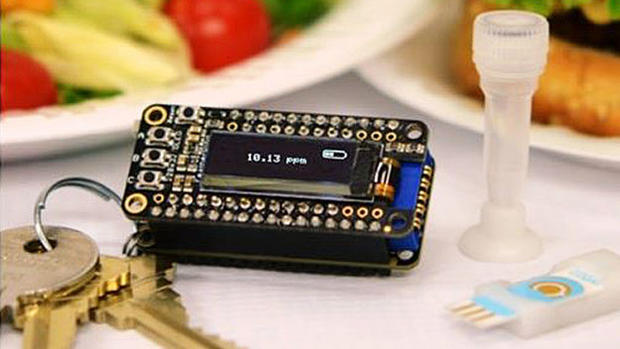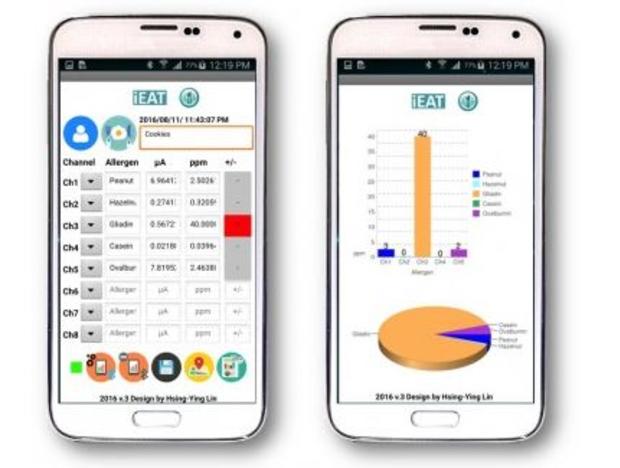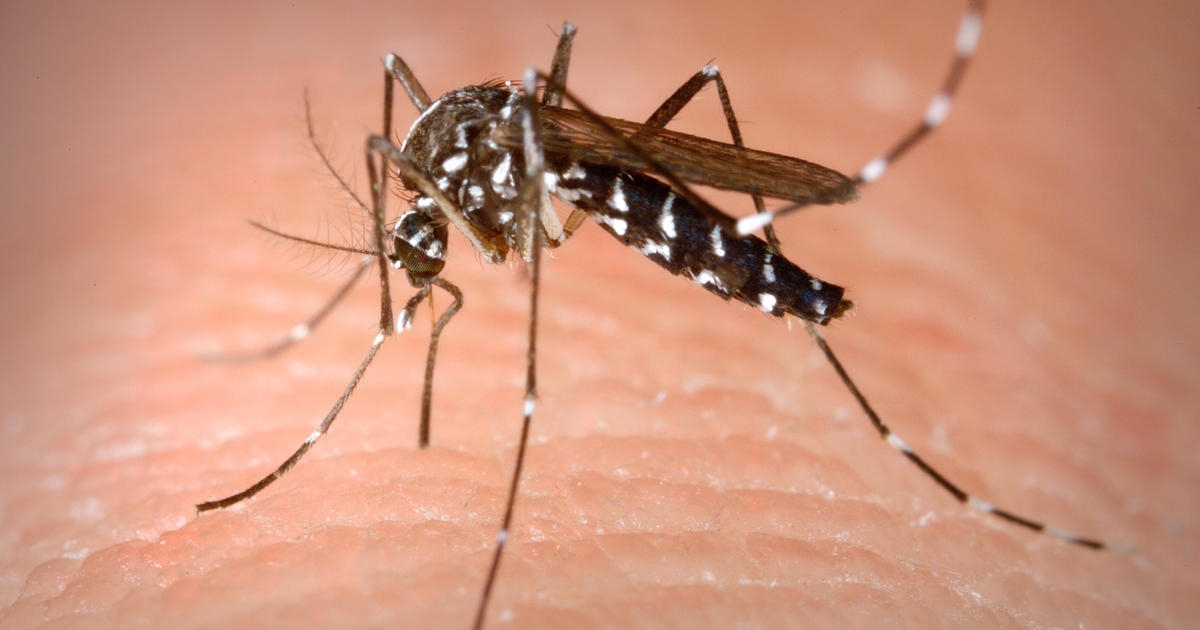Food Allergies? Tiny Device Lets You Check Dish In Minutes
Follow CBSMIAMI.COM: Facebook | Twitter
MIAMI (CBMiami) -- A new device is taking the guessing game out of those with food allergies.
The iEat device will let someone test for allergens like gluten, nuts or dairy in less than 10 minutes.
Researchers at Harvard Medical School developed the device that fits on a keychain and costs about $40.
It's something considered to be a help to public health since more than 50 million Americans have food allergies, some of which with just a trace of an allergen can have a life-threatening reaction.
"They have taken technologies they developed for other medical problems, such as early cancer detection from blood samples, and applied them to solving the daily, potentially life-threatening difficulties of people with food allergies—a highly significant, highly significant public health problem that incurs 25 billion dollars in annual costs in the U.S. alone," said Shumin Wang, director of the National Institute of Biomedical Imaging and Bioengineering (NIBIB).
The device is made up of three components.
The first is a plastic tube used to dissolve a small sample of the food.
Next, magnetic beads that capture the food allergen you're looking for.
Third, the solution is dropped onto a strip that is then inserted into the electronic keychain reader.
The display on the reader will show whether the allergen is present or not.
It's also paired with a cell phone app that helps others in the community.
Using the app, users can store data they collect from different foods at different restaurants and even in packaged foods. The data can be shared with other app users looking for restaurants that have no or low levels of a certain allergen in their dishes.
At last check, the research team granted a license to a local start-up company to make iEat commercially available.





